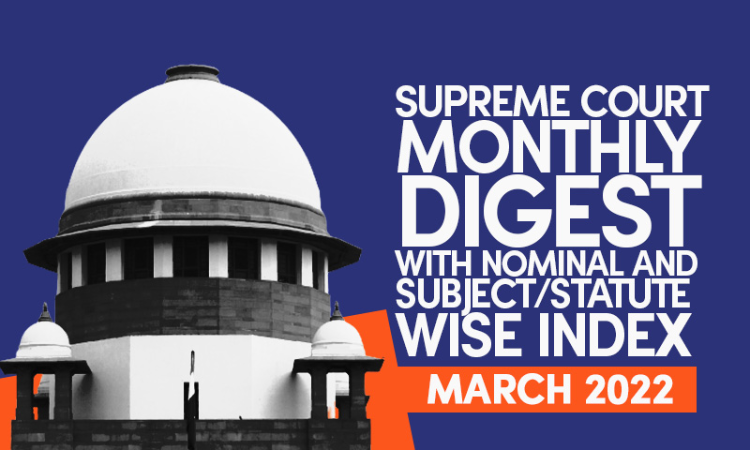Supreme Court Monthly Digest With Nominal and Subject/Statute Wise Index- March 2022
LIVELAW NEWS NETWORK
4 April 2022 10:47 AM IST

Next Story
4 April 2022 10:47 AM IST
Administrative Law - Natural Justice - Importance of natural justice and an opportunity of hearing to be afforded to the affected party in any administrative or quasijudicial proceedings. (Para 28) Esteem Properties Pvt. Ltd. v. Chetan Kamble, 2022 LiveLaw (SC) 226 Amendment - If power to amend or modify or relax a notification and/or order exists, the notification and/or order...
